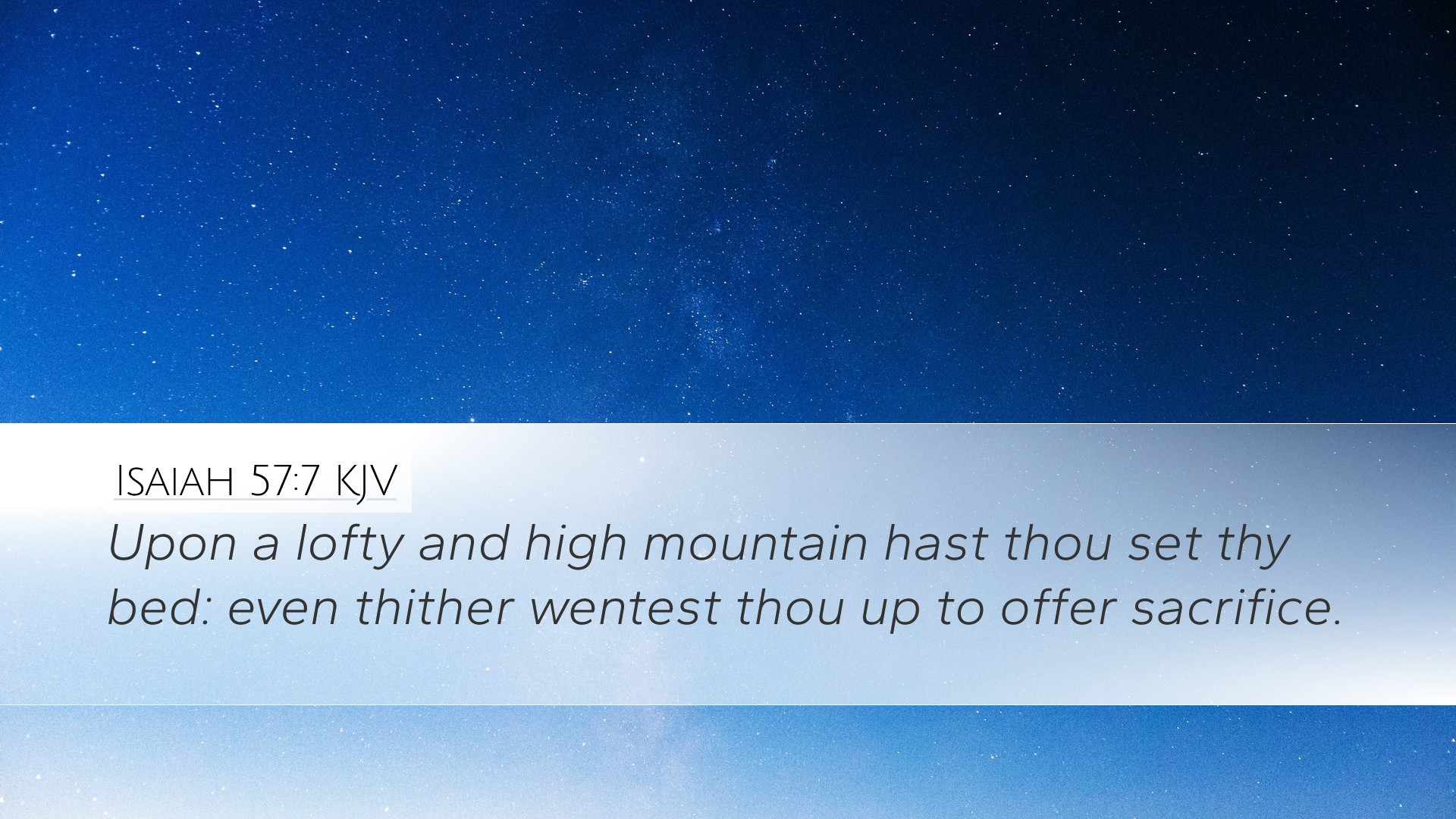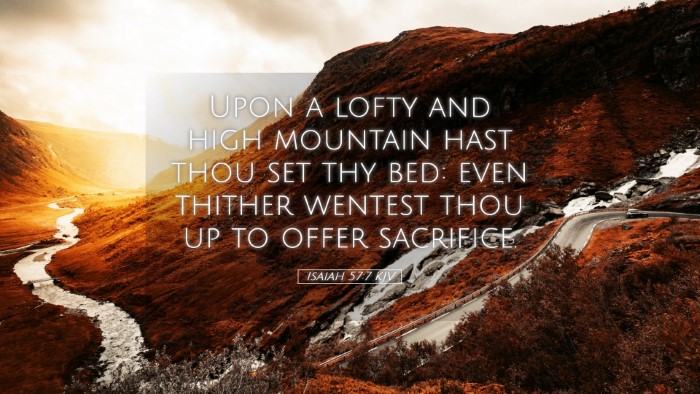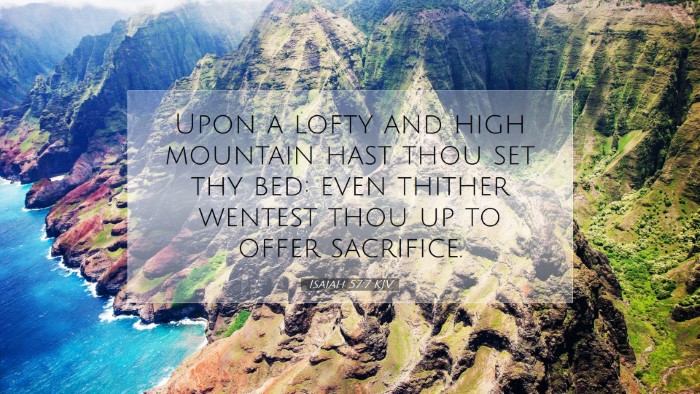Commentary on Isaiah 57:7
Bible Verse: Isaiah 57:7 - "Upon a lofty and high mountain hast thou set thy bed: even thither wentest thou up to offer sacrifice."
Introduction
This verse presents a vivid imagery of ancient practices associated with idolatry and spiritual corruption. It underscores an important theme in the Book of Isaiah, which critiques the people of Israel for their straying from God's commandments, seeking illicit worship in high places. Public domain commentaries from scholars like Matthew Henry, Albert Barnes, and Adam Clarke provide meaningful insights into this text, revealing its theological implications and moral exhortations.
Context and Background
Isaiah, a major prophet during a tumultuous period in Israel's history, addresses the moral and spiritual decay exhibited by God’s people. In this context, "high mountains" symbolize not just physical locations but also the elevation of false worship over the true worship ordained by God. The references to "bed" and "offering sacrifice" denote a significant dereliction of duty, highlighting how the Israelites sought pleasure and favor in pagan practices rather than adhering to their covenant with Yahweh.
Commentary Insights
Matthew Henry's Commentary
Matthew Henry emphasizes the folly of idolatry in this verse. He interprets the "lofty and high mountain" as a metaphor for the pride and arrogance that often accompanies such practices. Henry notes:
"The high places were the seats of idolatrous worship, and thus this passage reveals the spiritual decline of the people who have turned to the heights for what should be found in humble submission to God."
He further explains that the act of offering sacrifices in these high places depicted a willful deviation from God's ordained way of worship. It is a representation of seeking comfort and justification in the wrong places.
Albert Barnes' Commentary
Albert Barnes echoes similar sentiments, focusing on the moral implications of the practices described. He argues that:
"The description of setting one's bed on a high mountain not only shows the physical act but also the spiritual negligence of the people. They pursue their pleasure in worship while ignoring the true and righteous path ordained by God."
Barnes highlights that the verse serves as a reminder of the folly in seeking a place of worship that is detached from God's commands, implying that true worship must be conducted at the altars established by God, rather than in places influenced by pagan traditions.
Adam Clarke's Commentary
Adam Clarke takes a slightly different angle, interpreting the imagery of the "bed" as a symbol of intimacy in worship. He argues that:
"When the people went up to these high mountains to offer sacrifices, they engaged in a spiritual intimacy with their idols, which was a direct affront to God's call for fidelity to Him alone."
Clarke's insights deepen the understanding of how engaging with idols reflects an abandonment of true relational integrity with God. He warns that such practices lead to spiritual death and separation from the Living God.
Theological Implications
The overarching theological theme revolves around the dangers of syncretism—the blending of true worship with pagan practices. The lofty mountains symbolize not only physical spaces but also the spiritual heights to which humans might aspire apart from God. This calls to mind the modern-day parallels in which individuals may elevate personal desires or social constructs above divine truths.
Practical Applications
For pastors, students, and theologians, the insights gathered from this verse encourage a deep reflection on current worship practices. Here are some points of application:
-
Reflection on Worship: Evaluate whether worship settings are established on divine principles or if they have been influenced by contemporary culture and practices.
-
Faithfulness to God: Emphasize the call to faithfulness in worship, ensuring that practices align genuinely with scriptural mandates rather than personal or societal preferences.
-
Education on Idolatry: Teach congregations about the subtle forms of idolatry that can infiltrate worship environments, leading to spiritual apathy and decline.
-
Encouragement of True Intimacy with God: Foster deeper relationships within the community of faith, reminding members of their commitment to God as their first love and using worship as a means of intimacy and connection with Him.
Conclusion
In Isaiah 57:7, we find an enduring message concerning the nature of true worship versus the perils of idolatrous practices. The combined insights from respected commentaries reveal not only the historical context at the time of Isaiah but also the spiritual truths that continue to apply. As we strive to engage in authentic worship, let us ensure our 'high places' reflect our commitment to God rather than a perverse elevation of self or other influences.


